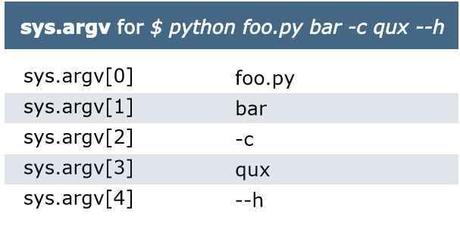Python Cheat Sheet 2019

New to programming in Python? No worries. Whether you’re working with string methods or built-in functions in Python, this Cheat Sheet helps you program the correct order for the operation so you achieve the correct result. https://downyfiles480.weebly.com/how-to-do-a-roulette.html. Sample logic rhythmology kontakt download free.
Sorting Data With Python. Dec 31, 2019 basics python. Variables in Python. Dec 10, 2019 basics python. Python 3 Cheat Sheet (PDF) Send Cheat Sheet ». Dependencies and Setup¶. In the Python code we assume that you have already run import numpy as np. In the Julia, we assume you are using v1.0.2 or later with Compat v1.3.0 or later and have run using LinearAlgebra, Statistics, Compat. Python Cheat Sheet: Complex Data Types “ A puzzle a day to learn, code, and play ” → Visit f inxter.com Description Example List A container data type that stores a sequence of elements. Unlike strings, lists are mutable: modification possible. Isubtitle 3 3 2 0. L = 1, 2, 2 print(len(l)) # 3 Adding elements.
- Python Cheat Sheets Last Updated: June 2, 2020 Here at PythonForBeginners, we have put together a couple of Python Cheat Sheets that we would like to share with you readers.
- Dependencies and Setup¶. In the Python code we assume that you have already run import numpy as np. In the Julia, we assume you are using v1.0.2 or later with Compat v1.3.0 or later and have run using LinearAlgebra, Statistics, Compat.

Python String Methods
The following list shows you how to perform common string methods, or actions on a string, in Python. Type the specific order to achieve the desired result. Free games slots with bonus game. Vellum 1 3 6 download free.
| Syntax | Action |
|---|---|
| S.count(substring[, start[, end]]) | Count occurrences of substring |
| S.decode([encoding]) | Decode to Unicode using default encoding |
| S.encode([encoding]) | Encode from Unicode using default encoding |
| S.endswith(suffix[, start[, end]]) | True if S ends with suffix |
| S.find(substring [,start [,end]]) | Find first occurrence of substring and return its index number; if not found, return -1 |
| S.index(substring [,start [,end]]) | Find first occurrence of substring and return its index number; if not found, raise ValueError |
| S.isalnum() | True if S has only alphanumeric characters |
| S.isalpha() | True if S has only alphabetic characters |
| S.isdigit() | True if S has only digits |
| S.isspace() | True if S has only whitespace characters |
| S.join(iterable) | Using S as a separator, stick together the strings in iterable |
| S.lower() | Convert S to lowercase |
| S.lstrip([chars]) | Remove whitespace (or chars) from front (left) of S |
| S.replace (old, new[, count]) | Replace old (a substring) with new |
| S.rfind(substring [,start [,end]]) | Find the last (rightmost) occurrence of substring and return its index number; if not found, return -1 |
| S.rindex(substring [,start [,end]]) | Find the last (rightmost) occurrence of substring and returns its index number; if not found, raise ValueError |
| S.rstrip([chars]) | Remove whitespace (or chars) from end (right) of S |
| S.split([separator [,maxsplit]]) | Split S using whitespace (or separator) and return a list of substrings |
| S.startswith(prefix[, start[, end]]) | True if S starts with prefix |
| S.strip([chars]) | Remove characters at beginning and end of S; default is whitespace characters |
| S.upper() | Convert S to uppercase |
| Note: String methods that change a string always return a copy; the original string remains unchanged. |

Python 3 Cheat Sheet 2019 Pdf
Python’s Built-In Functions
Built into the Python interpreter are a number of functions (pieces of code that carry out specific operations and return the results of those operations), including math functions other than the standard arithmetic operators. Beat the keeper. Here’s a list of Python’s built-in functions along with their pattern and corresponding action:
Python Cheat Sheet Matplotlib
| Syntax | Action |
|---|---|
| abs(number) | Return absolute value of number |
| all(iterable) | Return True unless at least one element is false |
| any(iterable) | Return False unless at least one element is true |
| chr(integer) | Return the character with the specified ASCII value (must be between 0 and 256) |
| delattr(object, name), del x.y | Delete the named attribute from object |
| dir([object]) | Return the names in the current namespace or object‘s namespace |
| eval(source[, globals[, locals]]) | Execute source as a Python expression |
| getattr(object, name[, default]) x.y | Return specified attribute (name) of object, raising AttributeError if not found; optional: return default if name doesn’t exist |
| globals() | Return dict of global names in the current namespace |
| hasattr(object, name) | True if object has the specified attribute (name) |
| isinstance(object, class-or-type) | True if object is an instance of the specified class (or its subclasses) or type; optional: specify multiple classes or types using a tuple |
| issubclass(C, B) | True if class C is a subclass of class B; optional: specify multiple classes using a tuple |
| iter(iterable) | Return an iterator over iterable |
| len(object) | Return number of items in a sequence or dict |
| locals() | Return dictionary of local names in the current namespace |
| max(iterable), max(a, b, c, …) | Return largest item of iterable or argument list |
| min(iterable), min(a, b, c, …) | Return smallest item of iterable or argument list |
| ord(char) | Return the ASCII value of a one-character string |
| range([start,] stop[, step]) | Return a list of integers from 0 up to (but not including) stop |
| raw_input([prompt]) | Return a string from standard input (usually something the user types), not including the newline character |
| repr(object) | Return canonical string representation of object |
| round(number[, ndigits]) | Return floating-point number rounded to nearest integer |
| setattr(object, name, value) x.y = v | Set object‘s attribute to the specified value |
| sorted(iterable[, cmp [, key [, reverse]) | Return a new sorted list; optional: cmp and key take functions as arguments; reverse=True |
| sum(iterable[, start=0]) | Return the sum of all elements of iterable; does not work with strings |
| unichr(integer) | Return a Unicode string corresponding to integer, which must be between 0 and 0x10ffff |
| xrange([start,] stop[, step]) | Return an iterable that generates a range from 0 up to (but not including) stop |
| zip([iter1 [, iter2 [, …]]]) | Take zero or more iterables and return a list of tuples that group the items at a particular index number; the list returned is the same length as the shortest iterable |

Python Cheat Sheet 2019
UNDER MAINTENANCE